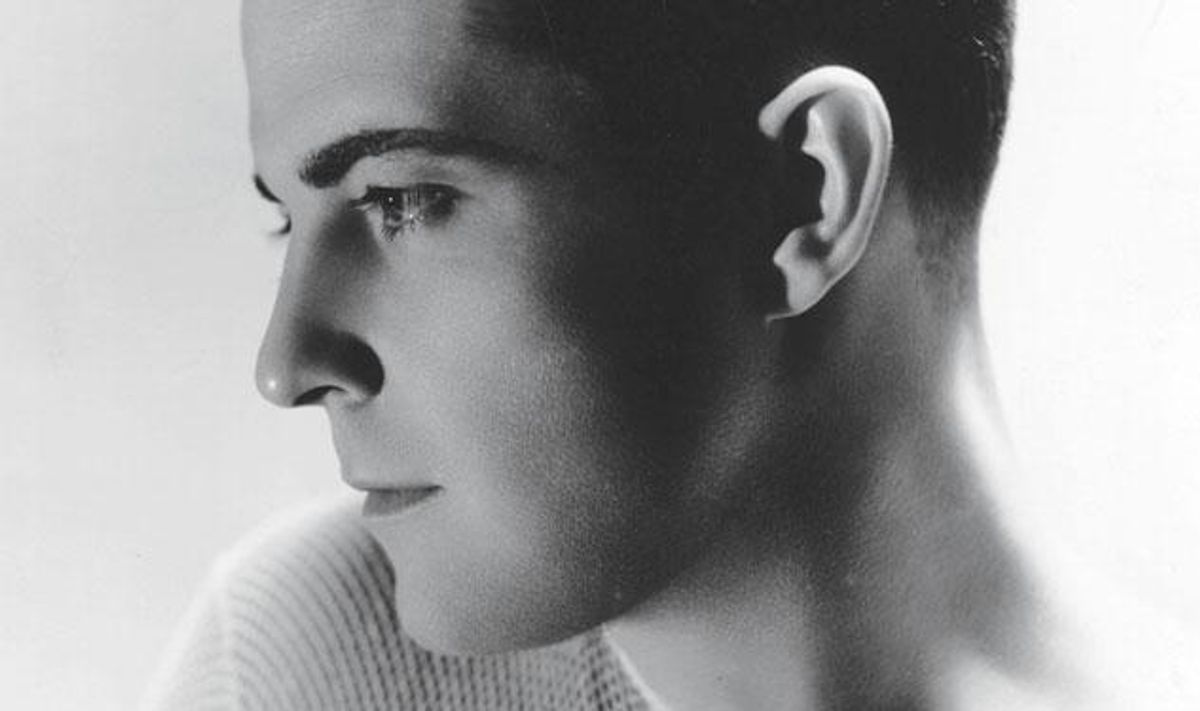
Michael Nava, Ramón Novarro, and a literary breakdown of ethnic and sexual barriers
July 14 2014 12:06 PM EST
February 05 2015 9:27 PM EST
By continuing to use our site, you agree to our Private Policy and Terms of Use.

Photo credit: Ramon Novarro: Hulton Archive/Getty Images
While enrolled in graduate school in the 1990s, I was disappointed by the absence of Latino writers in my American lit classes, and by the absence of queer writers in my Latino lit classes. It seemed as if my queer Latino identity had no place in the college curriculum, even though I had found a few writers who told me that I did exist on the page, that my story was as valid as anyone's. That handful of writers shaped my sacred library; I turned to it whenever I felt my queer Latino voice shrinking with the noise of the college classroom. Eventually, they nurtured my dream to become a writer who would be brave enough to add to the bookshelf where I kept novels written by John Rechy, Arturo Islas, and Michael Nava.
Nava's novels especially resonated with me because they featured an openly gay Latino, a detective named Henry Rios, who had no qualms about his identity. The seven-book series highlighted his intellect and intuition as a criminal defense lawyer, yet it also made room to explore his struggles confronting public prejudice and personal traumas, such as alcoholism. Nava's attention to his protagonist's history and interiority elevated each of the Henry Rios murder mysteries from a plot-driven whodunit to a nuanced character study of a man who, despite suffering the indignities of bigotry as he pursued a lead in a case, still maintained a deep belief in social justice.
I didn't have a chance to meet Nava until 2010 when, by sheer luck, we were both featured at the same literary events in Denver, New Orleans, and Eugene, Ore. Finally I had the chance to express my gratitude for Henry Rios. We became quick friends and we were allies now, both of us making space on the page for stories about people very much like us. During one of our strolls, we also discovered another connection: We were both obsessing over gay Hollywood icon Ramon Novarro.
My project then was a poem that came as a response to Peggy Lee's 1975 song "Tango." I was moved by the story of this gorgeous Mexican-American screen idol who, at age 69, died a horrific death at the hands of two hustlers. Nava was more interested in Novarro's life than in his death since, like Novarro's family, Nava's family had fled Mexico during the Revolution of 1910.
Nava's efforts finally came to fruition with the recent release of The City of Palaces, the first installment in his "The Children of Eve" series. This ambitious undertaking reaches back to 19th-century colonial Mexico and then moves into the beginning of the 20th century, witnessing one family's survival through one of the most poignant cultural and political shifts in Mexico's history. It's fitting that the youngest member of the Sarmiento family, Jose, the eyes of innocence in The City of Palaces, will mirror the changes in his homeland as he grows through his own series of awakenings in subsequent books in the Ramon Novarro series. Like Novarro, Jose's journey will be a story about migration, identity formation, transformation, and artistic expression. As a figure ahead of his time, Jose will break down ethnic and sexual barriers to thrive in a milieu that to this day embraces very few foreigners or openly gay men. From a revolution, Nava asserts, come revolutionaries.
"In the end, these novels are not about Novarro," Nava says, "but about men who, like Novarro -- like you and me -- have an immigrant history, who defied Mexican culture's rigid gender roles and over-the-top cult of machismo to be who they wanted to be: queer and visible. Because invisibility is a precursor to persecution."
Nava -- who, with Jose Sarmiento, offers the same level of commitment he made to Henry Rios -- last strolled with me in New York City earlier this year. He had just given a reading, and I held on to my signed copy of The City of Palaces. I wanted to tell him that he was still my hero, that I was proud he was back at the writing desk after so many years. But I opted to savor the moment instead, and to save those words for the next time we meet.
Rigoberto Gonzalez is a poet, living in Queens, NY. He recently received the Best Gay Poetry award from the Lambda Literary Foundation for his book of poetry, Unpeopled Eden.Read more at RigobertoGonzalez.com
Want more breaking equality news & trending entertainment stories?
Check out our NEW 24/7 streaming service: the Advocate Channel!
Download the Advocate Channel App for your mobile phone and your favorite streaming device!